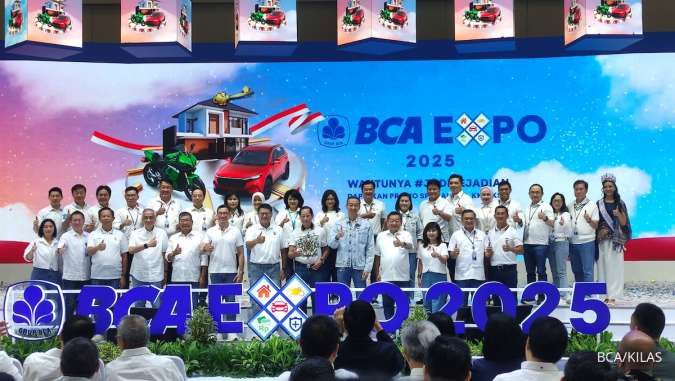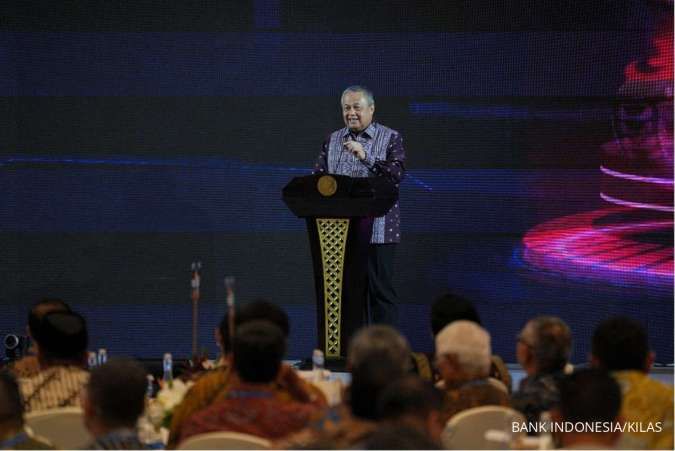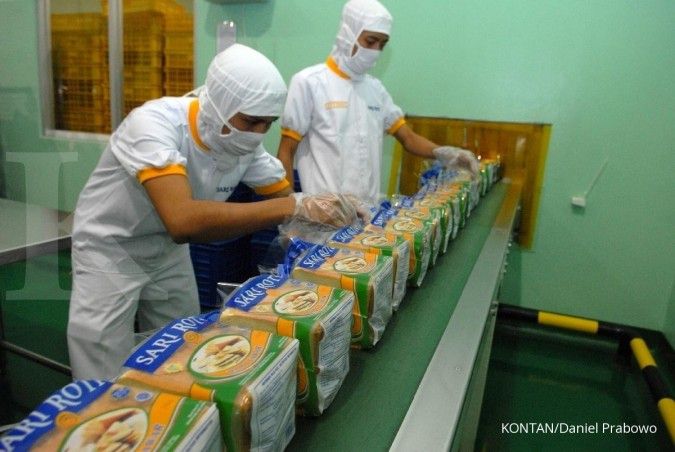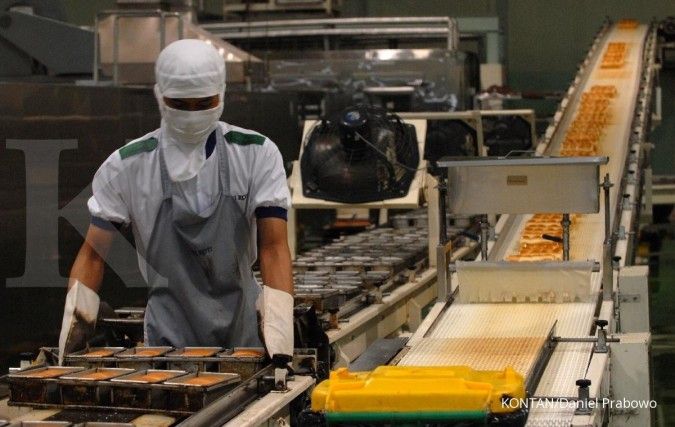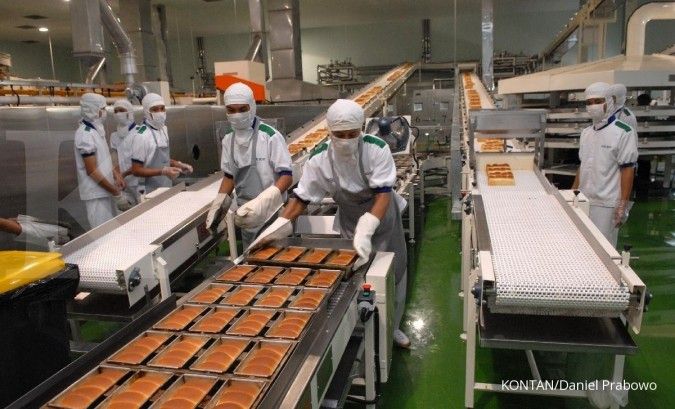JAKARTA. Bread producer PT Nippon Indosari Corpindo (ROTI), has said that it did not have plans to raise the price of its products although its profit percentage dropped far lower than its revenues. The net sales of Nippon Indosari rose by 22 percent year-on-year to Rp 706.8 billion in the first half of 2013. Despite a 3.6 percent drop in sales in the sweet bread category, this product line remained the number one revenue generator, contributing Rp 398 billion, or 56.3 percent, to total sales. The second largest revenue generator, white bread, had instead recorded a 68.3 percent increase in sales to Rp 392.4 billion. Nippon Indosari spokesman, Stephen Orlando, said that revenues had gone up due to the strong market demand for bread. “We have also managed to build a very strong brand,” Stephen said. However, he noted that expenses had gone up due to the rising cost of raw materials, including packaging. The higher costs impacted the total comprehensive income, which – unlike the double digit growth in revenue – had gone up by only 5 percent year-on-year to Rp 75.7 billion in the first half of 2013. Despite the rise in expenses and its pressure on margins, the bread manufacturer has no plans to pass the price on to the market yet. “We definitely have no plans to increase the prices of Sari Roti products this year,” Stephen noted. He added that the bread manufacturer had no plans to revise its financial targets despite the fluctuating foreign exchange rate given that it purchased its raw materials in rupiah. “We do not have a hedging policy in place as well. This is because all our bank loans and bonds are in the rupiah denomination, instead of US dollars,” he pointed out. By the end of the first half, the bread manufacturer’s liabilities stood at Rp 1.1 trillion, a 110.7 percent increase compared to the same period the previous year. The liabilities increase resulted from both the securing of a Rp 128 billion bank credit facility and the issuance of a Rp 500 billion bond during the first half. Nippon Indosari has previously stated that it expected sales to go up by at least 30 percent to Rp 1.5 trillion by introducing a more extensive product line to fulfill the demand of middle-class consumers. The bread manufacturer has allocated Rp 300 billion of its capital expenditure to expand its production capacity by having 30 production lines by the end of the year. The company is in the midst of constructing three new factories located in Java and Kalimantan to pump up production volume. Each factory, which will house two production lines for white and sweet bread products, will cost up to Rp 200 billion to build. Nippon Indosari currently operates eight factories equipped with 24 production lines altogether. Stephen added that the construction of these factories would run as targeted notwithstanding the rise in expenses. “All our projects are running as scheduled and the construction of the three factories are expected to be completed by December,” he noted, adding that the company was expanding its factories in Cikande, Pasuruan and Purwakarta as well. (Mariel Grazella)
Sari Roti keeps price unchanged this year
JAKARTA. Bread producer PT Nippon Indosari Corpindo (ROTI), has said that it did not have plans to raise the price of its products although its profit percentage dropped far lower than its revenues. The net sales of Nippon Indosari rose by 22 percent year-on-year to Rp 706.8 billion in the first half of 2013. Despite a 3.6 percent drop in sales in the sweet bread category, this product line remained the number one revenue generator, contributing Rp 398 billion, or 56.3 percent, to total sales. The second largest revenue generator, white bread, had instead recorded a 68.3 percent increase in sales to Rp 392.4 billion. Nippon Indosari spokesman, Stephen Orlando, said that revenues had gone up due to the strong market demand for bread. “We have also managed to build a very strong brand,” Stephen said. However, he noted that expenses had gone up due to the rising cost of raw materials, including packaging. The higher costs impacted the total comprehensive income, which – unlike the double digit growth in revenue – had gone up by only 5 percent year-on-year to Rp 75.7 billion in the first half of 2013. Despite the rise in expenses and its pressure on margins, the bread manufacturer has no plans to pass the price on to the market yet. “We definitely have no plans to increase the prices of Sari Roti products this year,” Stephen noted. He added that the bread manufacturer had no plans to revise its financial targets despite the fluctuating foreign exchange rate given that it purchased its raw materials in rupiah. “We do not have a hedging policy in place as well. This is because all our bank loans and bonds are in the rupiah denomination, instead of US dollars,” he pointed out. By the end of the first half, the bread manufacturer’s liabilities stood at Rp 1.1 trillion, a 110.7 percent increase compared to the same period the previous year. The liabilities increase resulted from both the securing of a Rp 128 billion bank credit facility and the issuance of a Rp 500 billion bond during the first half. Nippon Indosari has previously stated that it expected sales to go up by at least 30 percent to Rp 1.5 trillion by introducing a more extensive product line to fulfill the demand of middle-class consumers. The bread manufacturer has allocated Rp 300 billion of its capital expenditure to expand its production capacity by having 30 production lines by the end of the year. The company is in the midst of constructing three new factories located in Java and Kalimantan to pump up production volume. Each factory, which will house two production lines for white and sweet bread products, will cost up to Rp 200 billion to build. Nippon Indosari currently operates eight factories equipped with 24 production lines altogether. Stephen added that the construction of these factories would run as targeted notwithstanding the rise in expenses. “All our projects are running as scheduled and the construction of the three factories are expected to be completed by December,” he noted, adding that the company was expanding its factories in Cikande, Pasuruan and Purwakarta as well. (Mariel Grazella)
